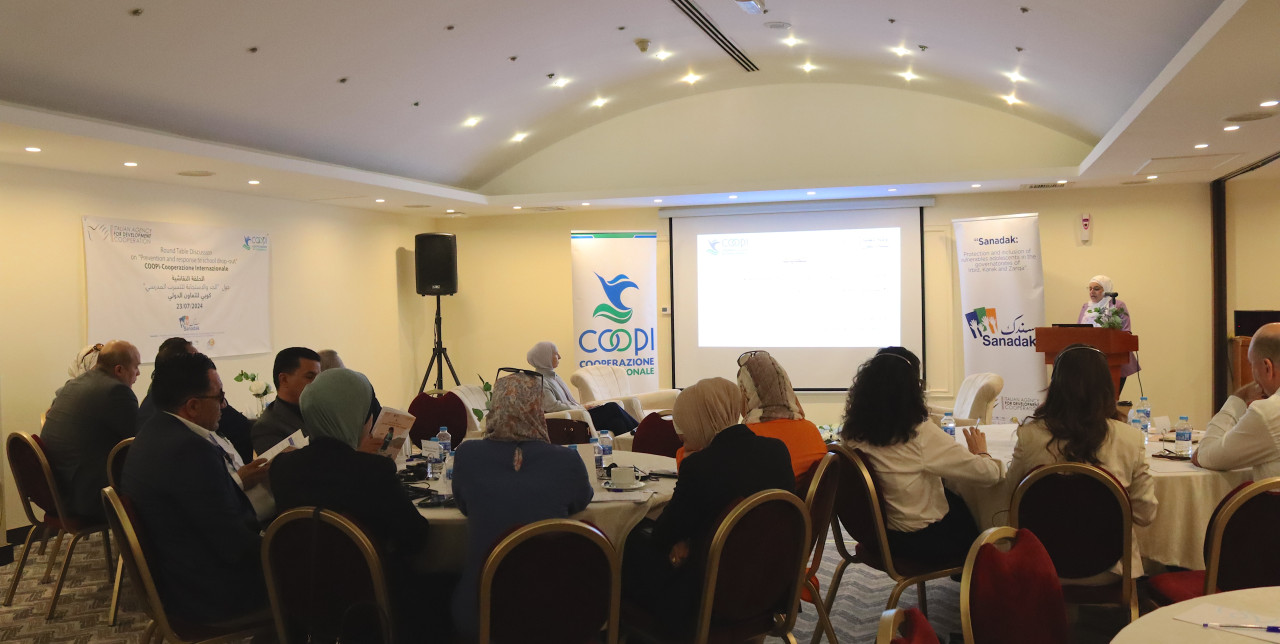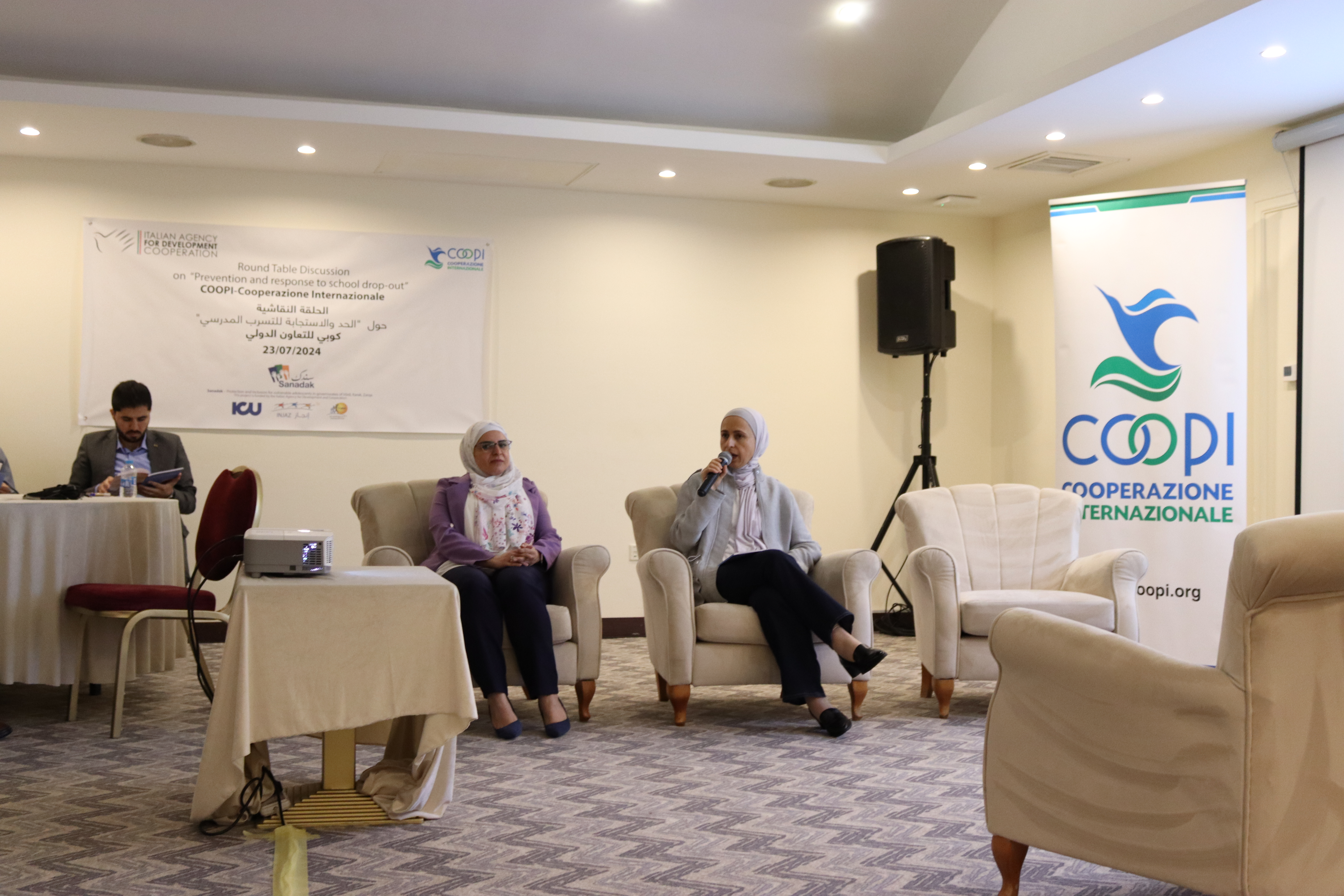06-08-2024 | di COOPI
Jordan. Prevention and response to school drop-out for vulnerable adolescents
On July 23, 2024, COOPI – Cooperazione Internazionale organized a pivotal round table discussion on the prevention and response to school drop-out, a critical issue impacting Jordan's vulnerable adolescents. Held at the Amman Paradise Hotel, the event took place in the framework of the Sanadak project – "SANADAK - Protection and Inclusion of Vulnerable Adolescents in Irbid, Karak and Zarqa Governorates" which has been instrumental in addressing educational challenges since its inception in March 2023. This project, set to conclude in July 2024, is a collaborative effort by COOPI and ICU, in partnership with INJAZ and Our Step, funded by the Italian Agency for Development Cooperation (AICS), which aims to increase the supply and quality of services for Syrian and host community children, especially adolescents 12-17 years old, at risk of dropping out of school, as well as survivors or victims of abuse, neglect, violence, exploitation with a focus on child labour and early marriage.
The event gathered key stakeholders from government and non-governmental sectors, including representatives from the Ministry of Education, the Ministry of Social Development, AICS, EU, USAID, UNICEF, GiZ, ICU, Humanity Inclusion, and Mateen.
Margherita Gastaldi, COOPI's Head of Mission in Jordan and Iraq, opened the meeting by emphasizing the significance of collaboration with the Ministry of Education to effectively reduce school drop-out rates. She highlighted how this partnership has enabled COOPI to meet the educational needs of at-risk adolescents, ensuring they receive the necessary support for their academic and personal development.
The first session showcased the training guidelines titled "Prevention and Response to School Drop-Out" developed by COOPI and INJAZ. Huda Obeidat, North Region Manager from INJAZ, presented these guidelines and shared insights from capacity-building workshops targeting 30 teachers and counselors across 11 schools in Irbid, Karak, and Zarqa. These workshops were pivotal in enhancing the skills of educators to address and mitigate the factors leading to school drop-out.
Ms. Amal AlKhateeb, an education-protection specialist, further elaborated on the content of the training materials. She provided a critical review from a protection perspective, highlighting key recommendations to improve the effectiveness of these interventions.
The discussion moved into a panel session focusing on the current state of school drop-out in Jordan, exploring existing policies, challenges, and necessary improvements. Dr. Bassam Habahbeh, Head of the Educational Counselling Department at the Ministry of Education, discussed the challenges in reducing school drop-out rates, particularly the lack of coordination among stakeholders and the difficulties caregivers face in supporting preventive measures at the school level.
Mr. Mahmoud Masha’al from the Ministry of Education’s Non-formal Education Department discussed the role of non-formal education programs in addressing drop-out rates. However, he pointed out the funding gaps that hinder the full support of these initiatives. Mr. Sa’ad AlZawahreh emphasized the need for accurate and unified data on school drop-out rates to guide effective program design and implementation.
The event concluded with a series of recommendations, including the necessity for increased funding for both preventive and responsive measures, the establishment of non-formal education centers across Jordan, and the importance of engaging local communities in efforts to prevent and respond to school drop-out.
The Sanadak project is a key component of COOPI's broader protection programs in Jordan, which have been active since 2020. These programs focus on child protection, education, and the provision of specialized services such as case management, psychosocial support, and cash assistance. COOPI has been working in Jordan since 2017, striving to strengthen community capacities to address protection concerns, fostering a community-based approach to development and humanitarian response.




 Jordan
Jordan
